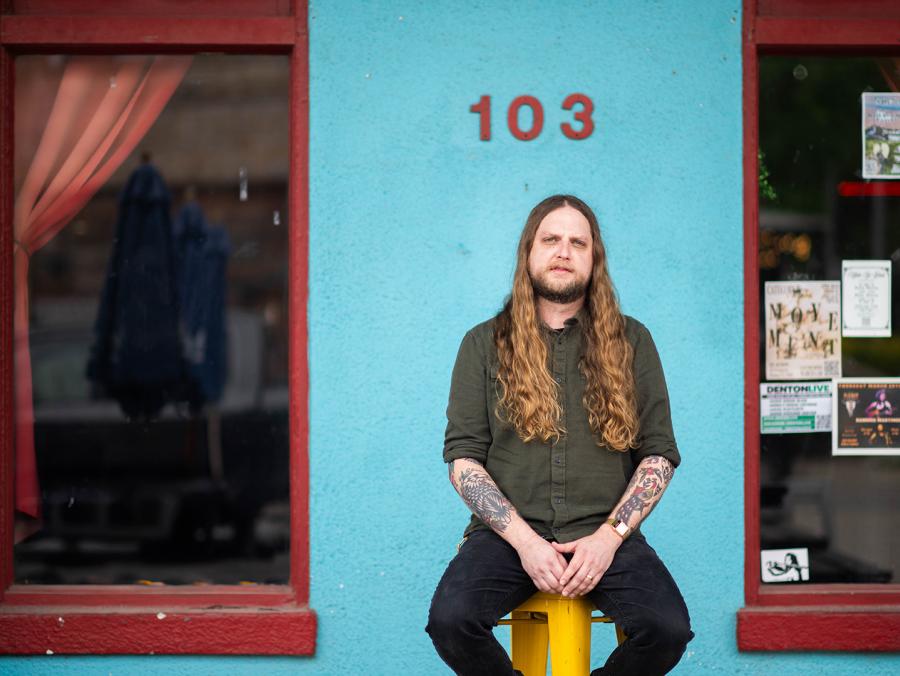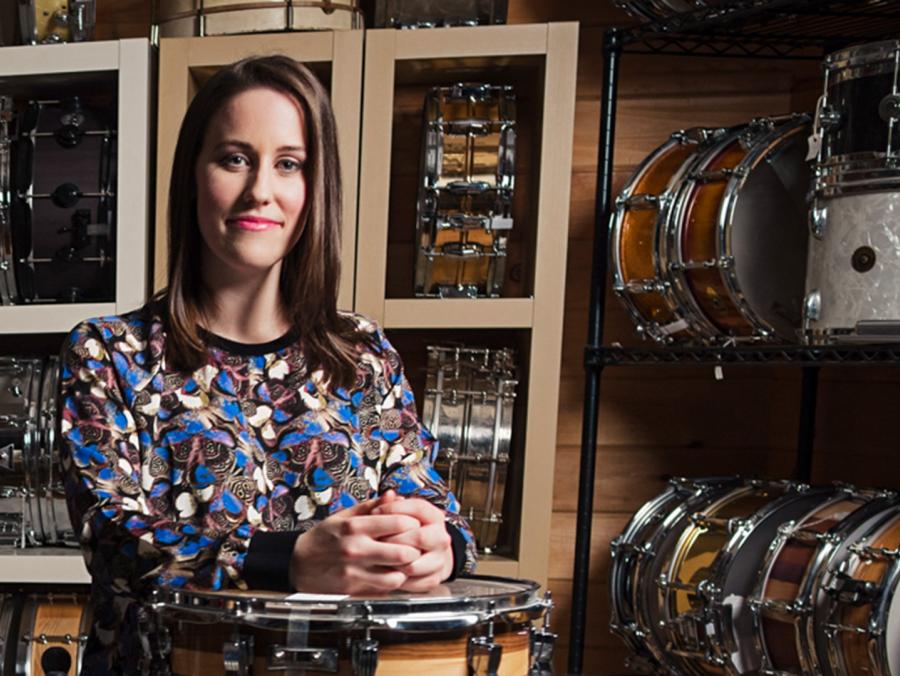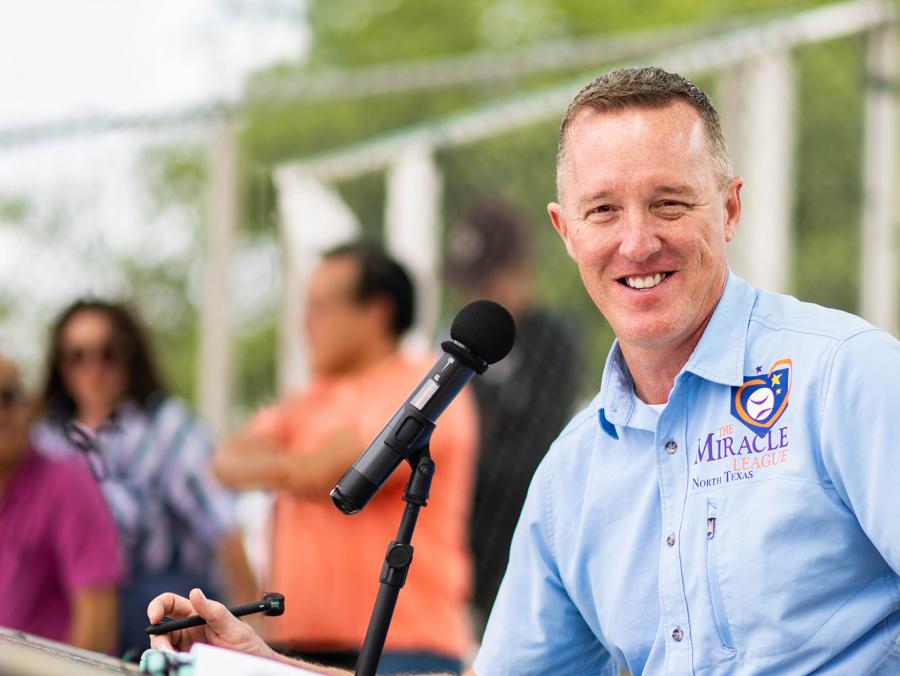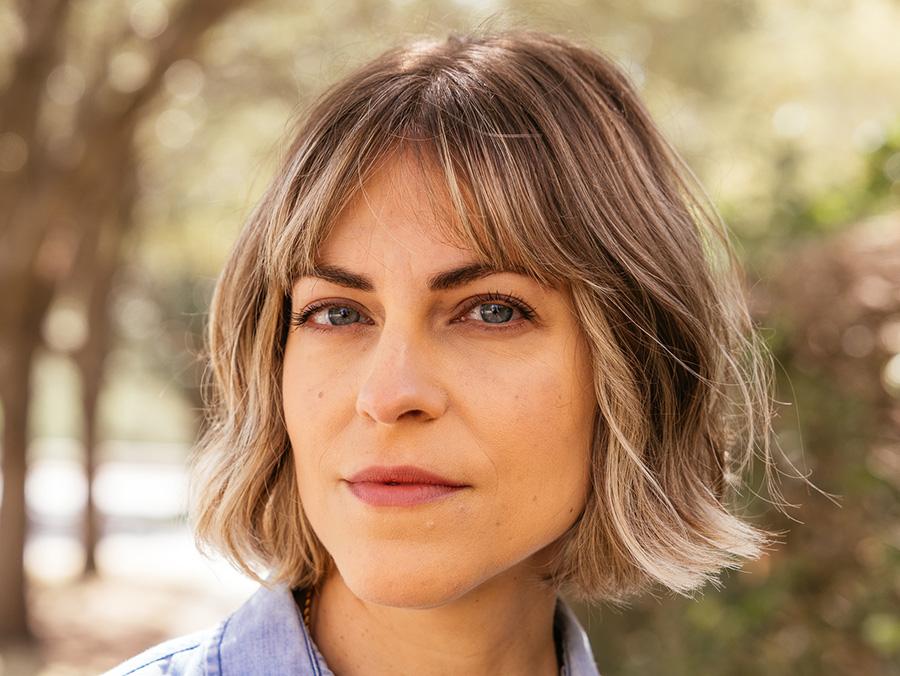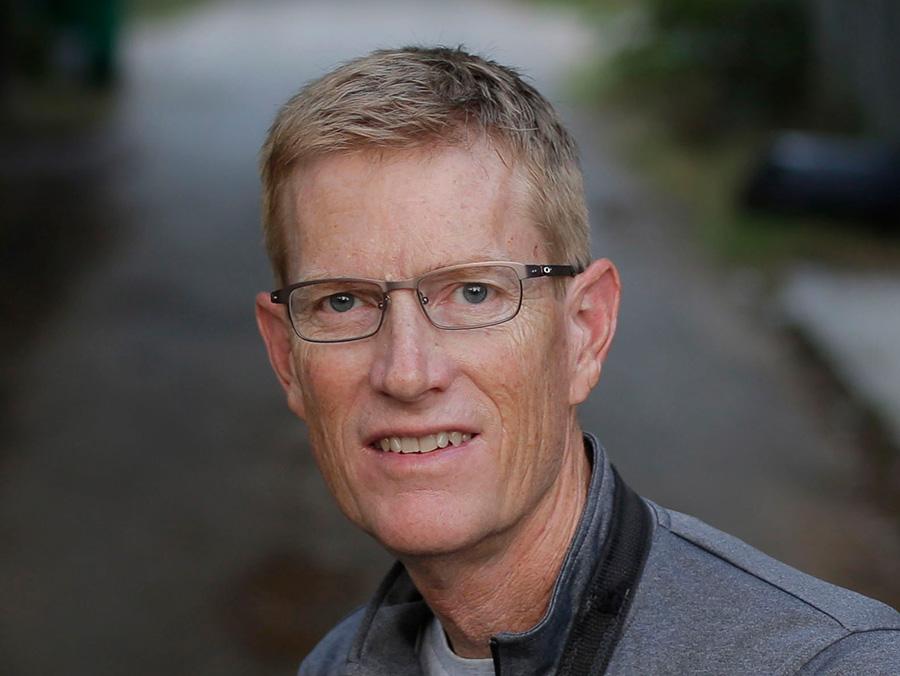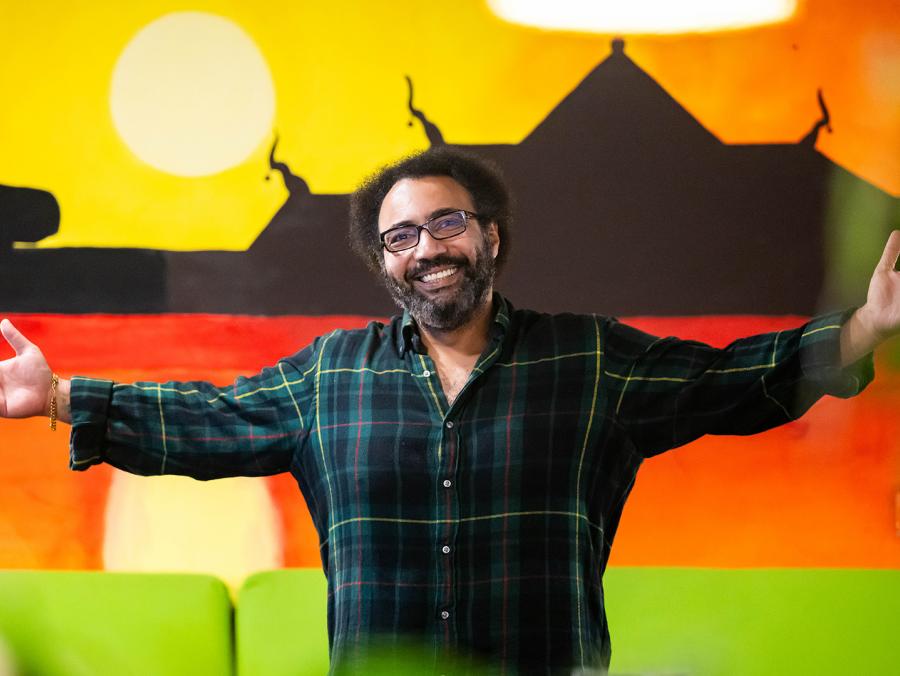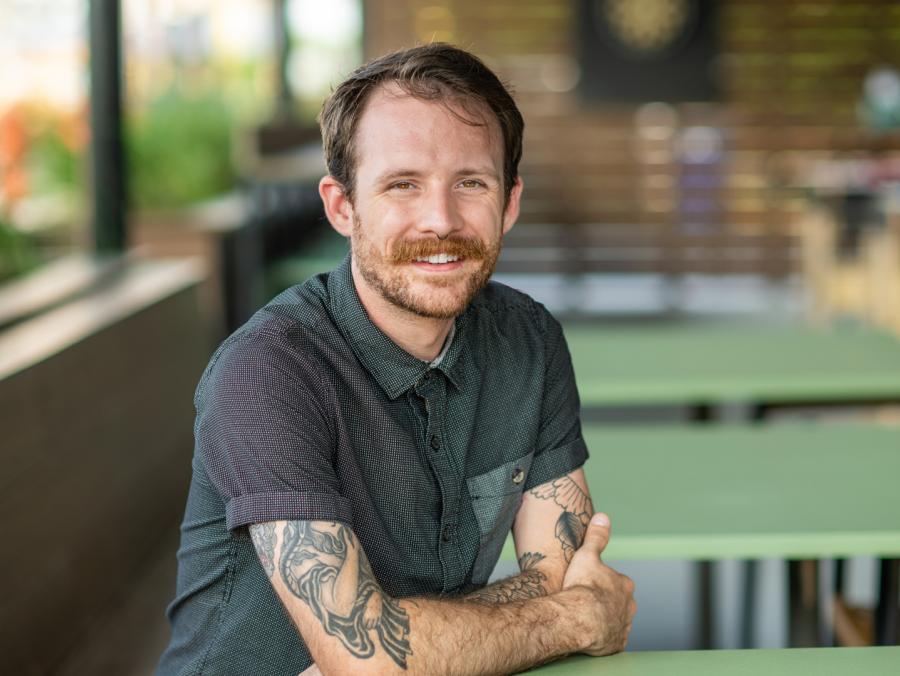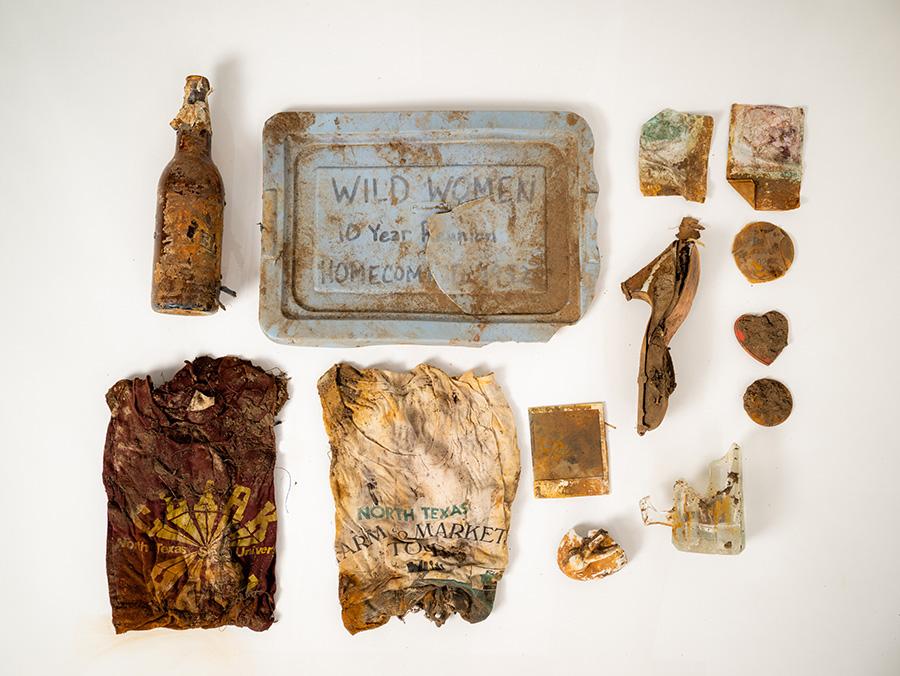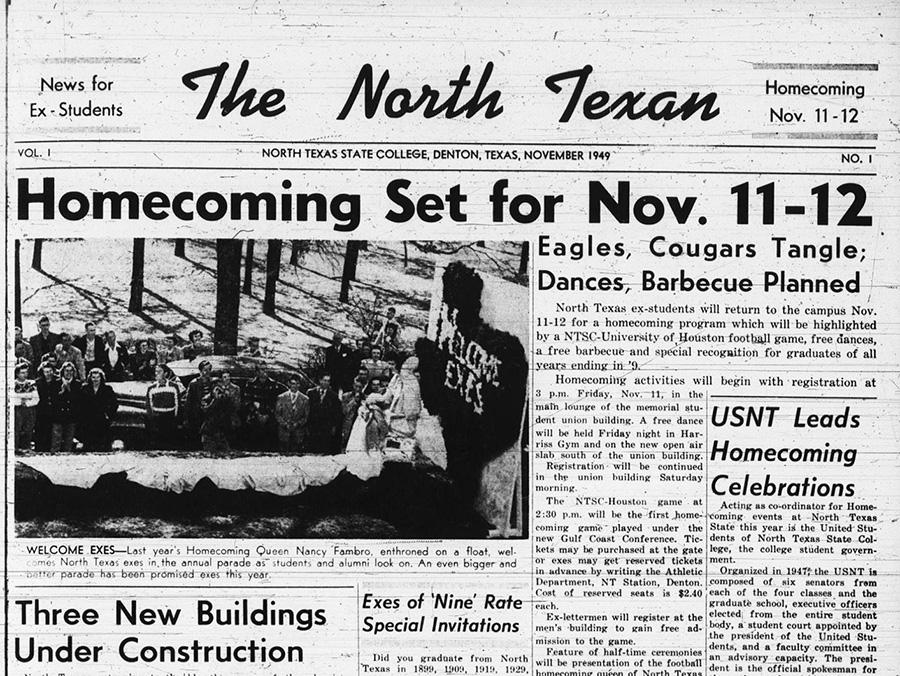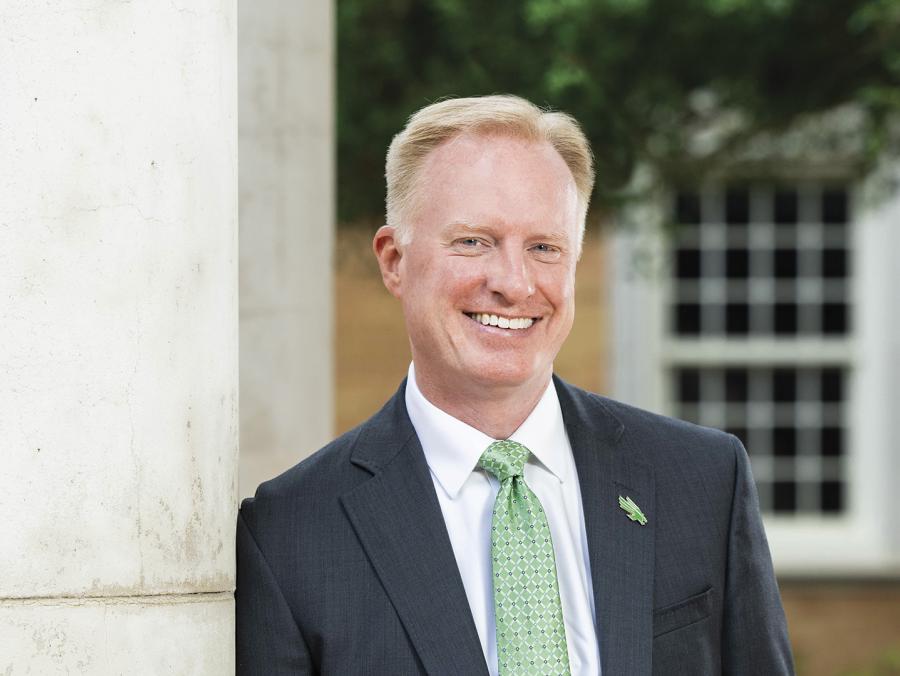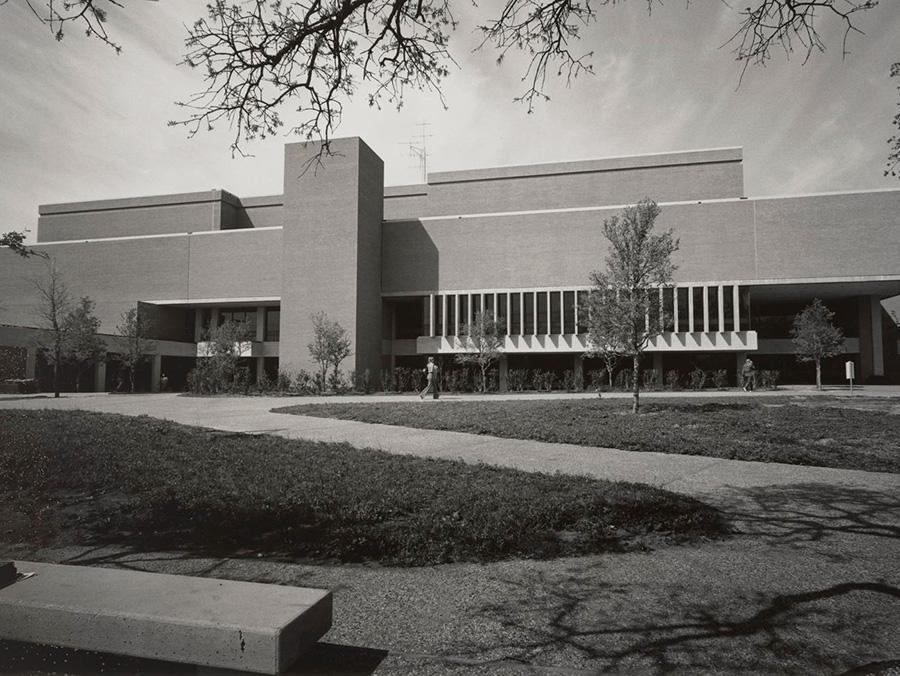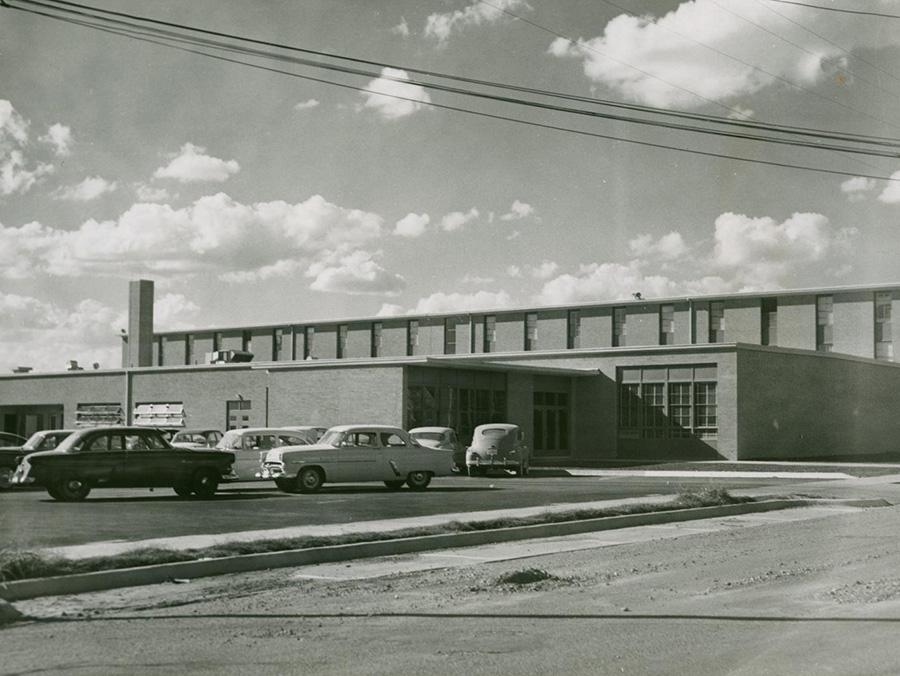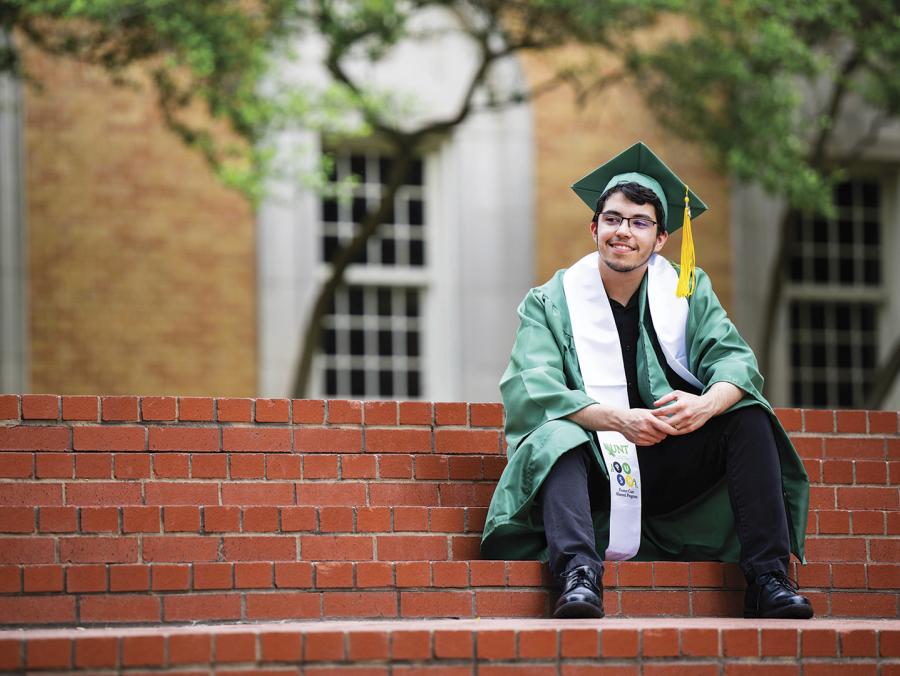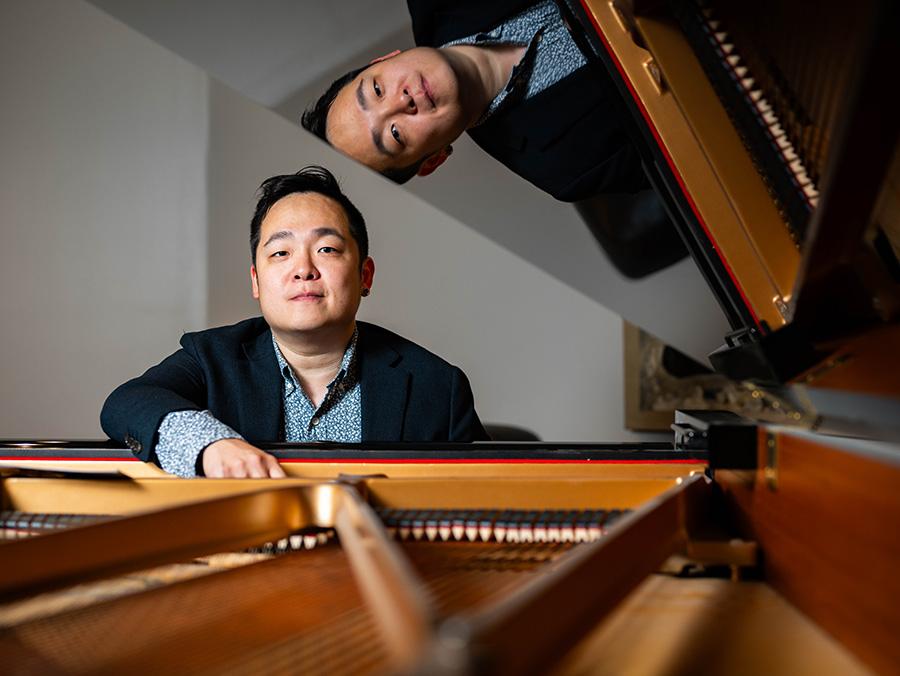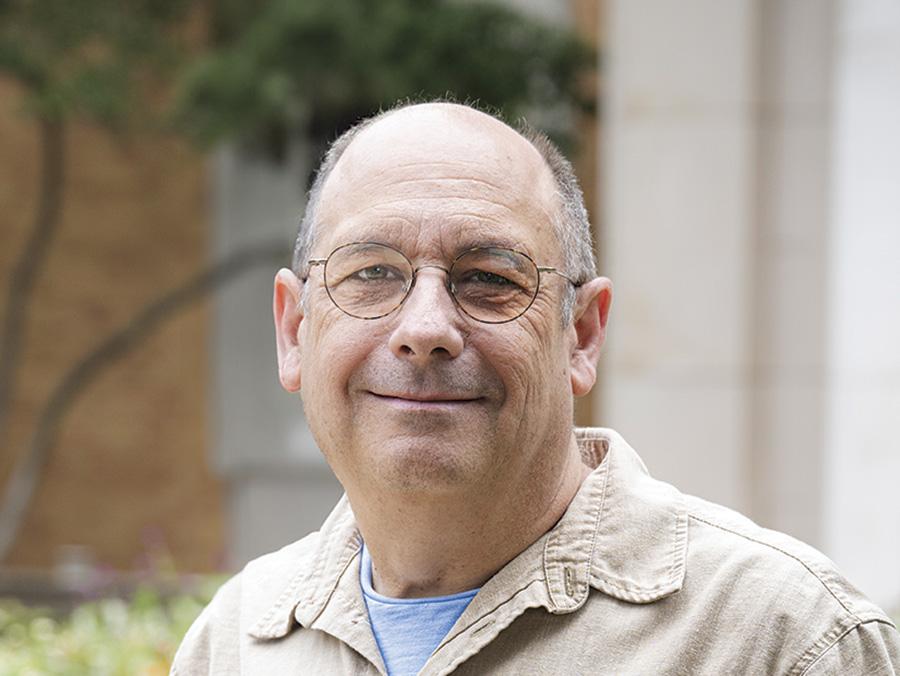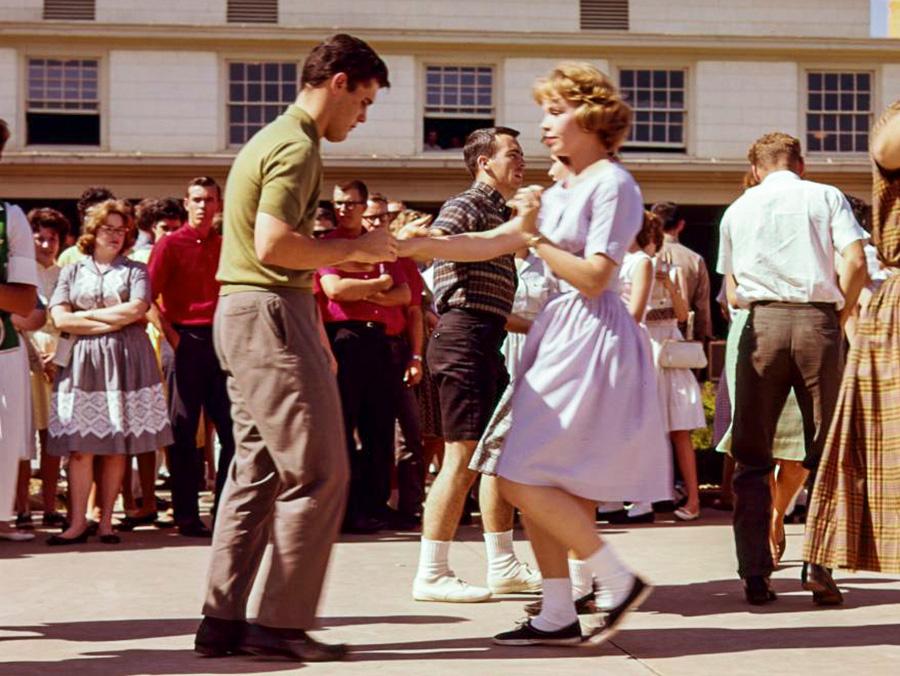During the years he studied music at North Texas, Billy Harper ('65) was known as "The Mad Practicer." The nickname was earned because he'd hole up for hours on end in a College of Music practice room perfecting his tenor saxophone performance.
"I stayed there until they closed the building at night," he recalls. "I could play whatever I wanted to play."
Harper's diligence paid off. In 1964, he earned a spot with UNT's famed One O'Clock Lab Band, becoming the first Black performer in the renowned jazz band's history.
In the decades since, he has recorded nearly two dozen solo albums, performed with many of jazz music's biggest names -- including Louis Armstrong, drummers Art Blakey and Max Roach and trumpeter Lee Morgan -- and cemented his status as a legend of the genre.
Harper is among the last remaining "Texas Tenors," a select group of Lone Star State sax players whose signature sounds blend R&B, swing, blues and bebop. At age 81 he continues to tour internationally, fronting the Billy Harper Quintet. This summer, the Houston native returned to Texas and played four shows, including two sets at Steve's Wine Bar in Denton. Harper has performances scheduled later this year in Philadelphia and early next year in New York City -- where he relocated soon after graduating from North Texas -- as well as in Austria and Greece. He still hits the road to perform because "I'm just fulfilling what I thought I was supposed to do," he says -- an idea formulated while he was at North Texas honing his craft.
"I had to stay in that practice room and work a lot. I had to do that for myself."
In fact, Harper says that space is likely where he began composing "Capra Black," the title song from his 1973 debut album, which is included among the influential recordings of jazz music's Black Consciousness movement. "Practicing so much, I would sometimes get tired of that and I'd sit down and try to write something," he recalls. "I'd get these little sounds in my head and one of them was the beginning of 'Capra Black,' and then I developed it."
More than 50 years since its release, the song is considered "sort of an anthem," Harper says. "A lot of musicians who are younger than me -- and some who are my age and a little older -- always ask, 'How did you put that together?' I don't know how I put it together. I think it just came from Heaven and got in my head and my soul."
Music has always been in Harper's soul. As a child, he sang solos at the Houston church where his grandfather preached. He discovered the saxophone at age 11 after stopping to admire one in a store window along his walk home from school. "I didn't know anything about the sound. I just liked the way it looked," he recalls, and he put the horn on his Christmas wish list that year. By age 14, he had formed the first incarnation of the Billy Harper Quintet.
Harper began attending North Texas in 1961 after "somebody told me they had a real good jazz department. I said, 'That's the place for me.'" He worked his way up the ranks of the Four, Three and Two O'Clock Lab Bands before joining the One O'Clock Lab Band, which was then led by Leon Breeden, director of jazz studies from 1959 through 1981.
"He made sure only the top guys were in the One O'Clock band," Harper says. "For me to get to that band and play in that band, it was like I finally made it."
During the era of segregation, Harper -- who wasn't allowed to live in the North Texas dorms and instead walked to campus daily from a Denton home where he and several other Black students resided -- says he was warmly welcomed into the band.
When he was attending North Texas, he ventured to Dallas on most Sunday afternoons to sit in with legendary tenor sax player James Clay and other professional jazz performers at clubs there. "I realized how great those guys were. It was a great experience for me and it was very lucky I was able to be there," he says.
Coupled with his time in the One O'Clock Lab Band, Harper says the experience readied him to take on the New York jazz scene, where he would achieve music-legend status.
"North Texas prepared me to be able to cope with whatever happened on the professional level, especially in the big bands," Harper says. "I was in college but I thought, 'I'm going to New York eventually and I'm going to play with whoever the big names were.' It was just a matter of, 'I'm going to be on that level.'"
Harper hopes his music continues to resonate with fans and fellow artists for decades to come. "I hope that one or two or three songs stay in the jazz world and some of the younger players keep playing them. That way, maybe some of the messages that I felt in writing those songs might get across to the ears of listeners who can hear it."




